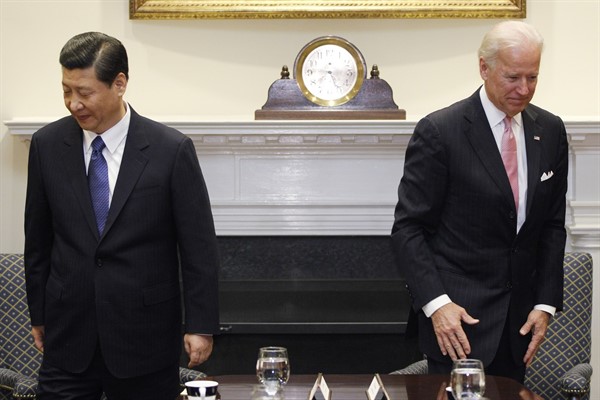If everything goes to plan, U.S. President Joe Biden will hold his first video summit with Chinese President Xi Jinping on Monday, according to multiple news reports this week. Though the meeting has yet to be officially confirmed, it suggests that Washington and Beijing have managed to reach some sort of modus vivendi, at least on how to manage bilateral relations more productively. If it takes place, the summit would follow closely on the heels of an—admittedly detail-free—agreement to cooperate on climate action announced at the COP26 climate summit in Glasgow.
Although previous meetings between high-level representatives of the Biden administration and the Chinese government have been acrimonious, it is unlikely the two sides would have agreed to a leaders’ summit if they had not already prepared the groundwork for a mutually acceptable joint statement at its end.
That alone would be a meaningful improvement for bilateral relations that have deteriorated to their worst level in recent memory. Talk of an economic decoupling and a new Cold War have now become commonplace in the U.S., even as global challenges like the climate crisis and the pandemic require multilateral approaches that are all but impossible in the absence of U.S.-China cooperation.

